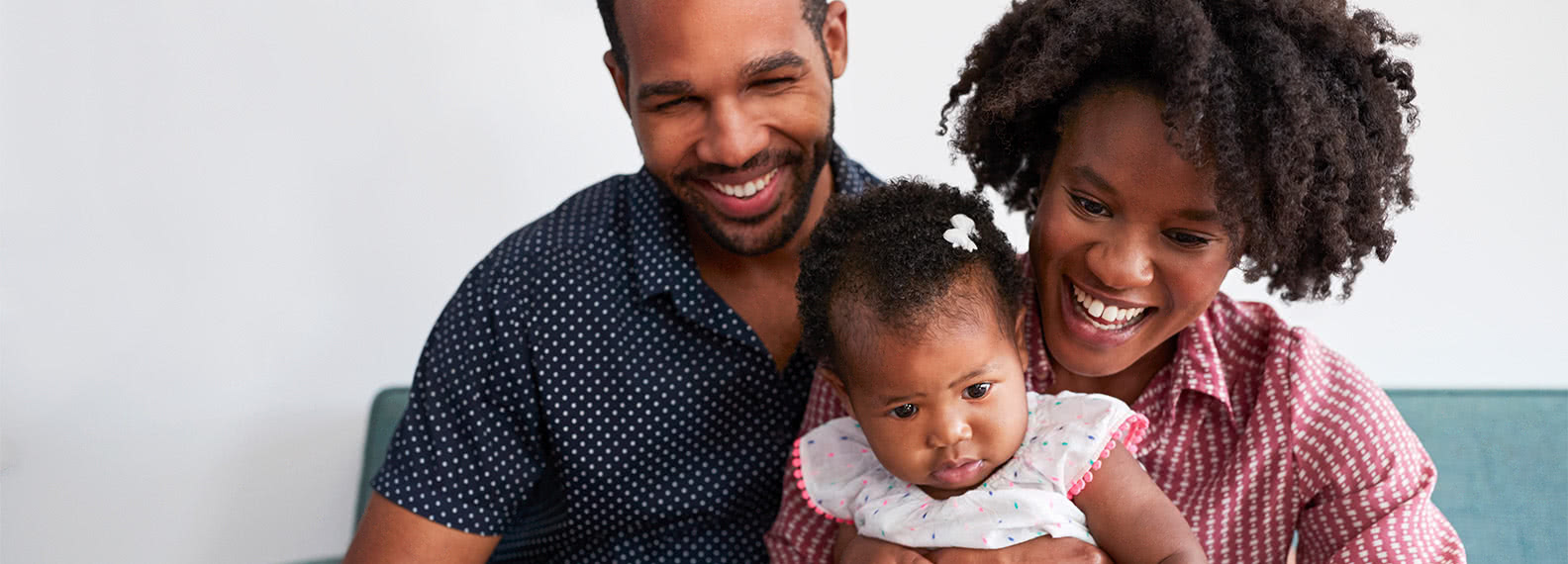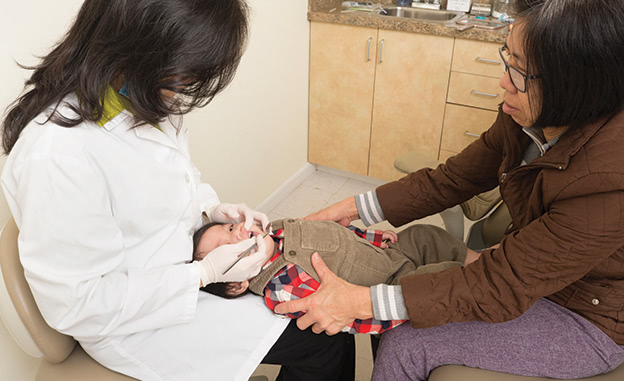
Section
Children’s Health
The tips on this page can help you keep your child healthy. But all children get sick from time to time. It’s important to notice when your child is not well, and take him to his doctor.
Where to Find Help
Information and referral to services, including food assistance and disaster help.
2-1-1
Things You Can Do
Get Hearing and Eye Checks
Parents are often the first to notice a hearing or vision problem. It’s important to correct these problems because they can make it hard to succeed in school. If you think your child needs a hearing or vision test, talk to his doctor.
Is My Baby Sick?
Look for changes in your baby’s normal behavior. You will soon know his regular sleeping, eating, and bowel habits. You will know his normal level of activity and fussiness. If he does not act or look normal, call your doctor. The book What to Do When Your Child Gets Sick can also help you decide when to call the doctor. The book is part of the Kit for New Parents.
When Your Child Is Sick
At your baby’s first doctor visit, ask when you should call the doctor and when you should call 9-1-1.
Call the doctor if your baby is younger than 3 months and has a fever.
Call the doctor if your baby has repeated diarrhea or vomiting. And make sure he gets plenty of liquids.
For fever, ask your doctor if you should give your child acetaminophen (Tylenol) or another medicine. Do not give aspirin. It can cause a rare but serious disease called Reye’s Syndrome. And do not use ibuprofen before 6 months.
About Ear Infections
Ear infections are common in young children. Your baby may be fussy or cry more than usual when he has an ear infection, or he may pull on his ear. If your child says his ears hurt, or he seems to have an ear infection, call his doctor.

Your child should see a dentist by the time he is a year old.
Protect Your Child from the Sun
Too much sun can cause sunburn and overheating.
Use baby-safe sunscreen and a hat with a brim. Cover as much skin as possible with clothing.
Keep babies younger than 6 months out of direct sunlight.
It’s best to take your child outside in the morning, when the sunlight is less strong.
Call 9-1-1 if your child seems to be overheating. Watch for weakness, nausea, headache, heavy sweating, rapid heartbeat, confusion, or muscle cramps. Dry skin with no sweating is another sign of overheating.
Protect Your Child from Dust and Air Pollution
Children’s lungs are more easily damaged than adults’ lungs. To protect them:
Do not let anyone smoke or vape around your children.
If the air quality is poor, keep children inside.
Vacuum often. It’s also good to dust or mop with a damp cloth.
Dental Care Is Healthcare
Having a healthy mouth and healthy teeth is important for overall health. Your child should see a dentist when his first tooth comes in, or by age one.
About Asthma
Asthma is an ongoing condition that causes breathing problems. When air passages in the lungs are irritated, they can swell and get narrow. This can cause coughing, wheezing, or shortness of breath.
Your child’s doctor will recommend a plan to prevent asthma flare-ups. This may include prescription medicine and making changes in your home. It’s important to learn what triggers your child’s asthma symptoms. Then you can take steps to avoid the triggers.